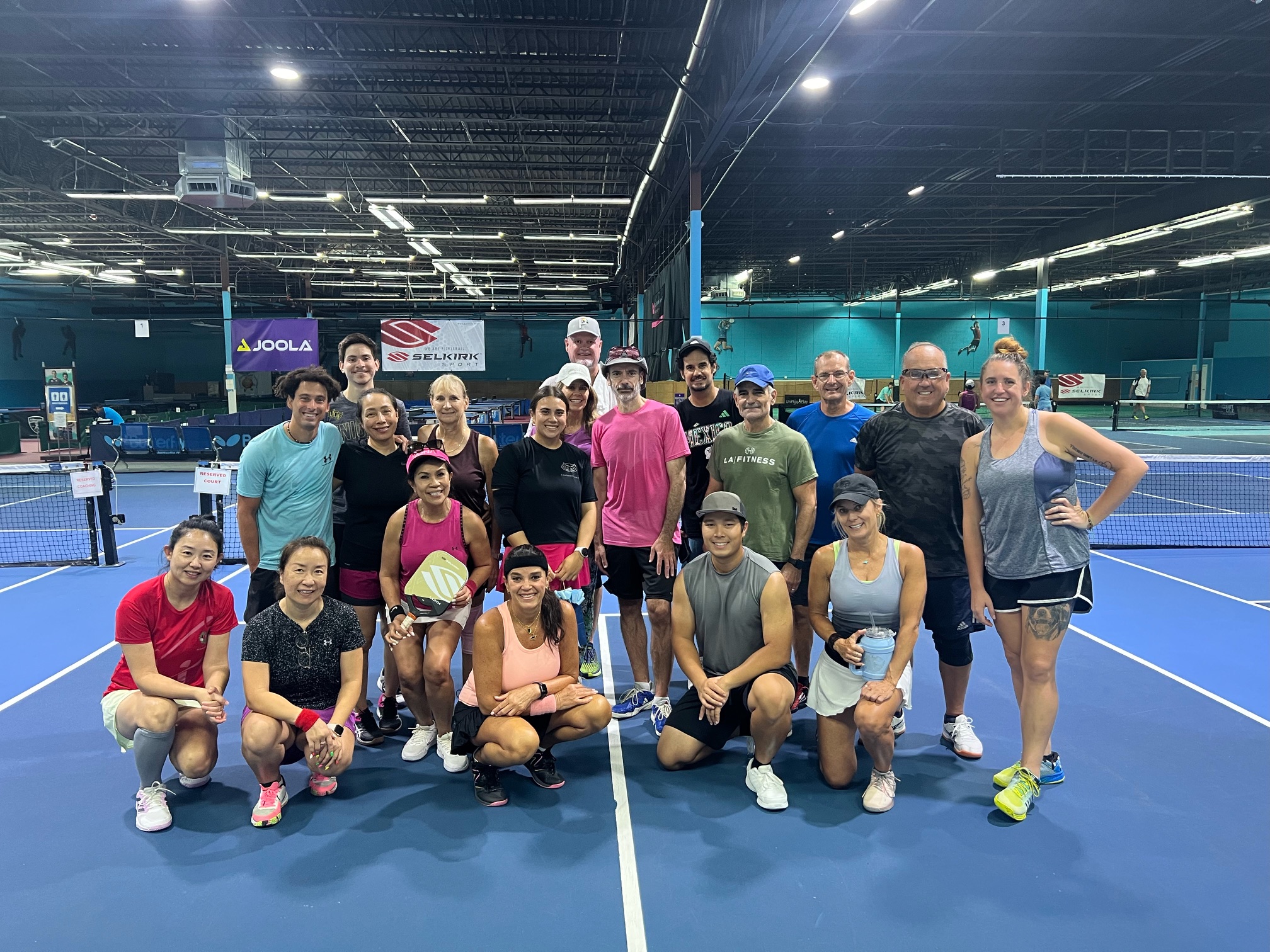How the Orlando Diamondbacks Pickleball Club transformed play with Setsy

Marty Freer

Marty Freer
Today, we are privileged to interview Scott Gouveia from the Orlando Diamondbacks!
Tell us about your club
Our club is the Orlando Diamondbacks Pickleball Club. We are a virtual club that uses a number of facilities around Orlando, Florida, to offer daily organized play to intermediate and advanced pickleball players. Like most pickleball players, we started playing by attending an open play session at a local park.
We currently have about 90 members. Players generally live in Central Florida and have been playing pickleball for several years. Our sessions typically run over 3 hours, so some say they are obsessed with pickleball.

What kind of events or matches does your club organize regularly?
We do almost exclusively round-robin style doubles pickleball.
What were some of your biggest challenges before using Setsy.io?
Our biggest challenge is how to run a session of 15-20 people at different skill levels across multiple courts while keeping track of byes and prior pairings. To complicate things further, the number of available courts also changes based on demand at the facility during the session.
I looked at and installed nearly every available app to solve the problem. Most apps in the space will generate a round-robin style tournament based on several assumptions that didn't work in our world:
- Not all players arrive and leave at the same time, and we cannot wait for 2 people to show up while 10 others sit around waiting.
- Players can get tired and request a bye in the middle of the session, but the pairings are pre-constructed. The number of courts available is fixed at the start of the session, or it is assumed that you have enough courts to minimize the number of byes.
- The apps could not move players and courts around after a round was generated or didn't have an undo feature if you created a round but then discovered someone had left the session and the pairings needed to be re-generated.
- The apps assume all players are at the same skill level and that "everyone v. everyone" is the goal. This would create huge mismatches and fast games that would leave some players sitting around waiting for other games to finish before the next round started. An even worse case would be if a player was stuck in that situation for several rounds in a row.
Experience with Setsy.io
How did you first hear about Setsy.io, and what made you try it?
Which features of Setsy.io have been the most useful for your club's operations?
I was continually looking for a solution to our problem. At one point, I was even going to attempt to write the program myself. I looked at other sports and activities to see how they handled the problem. I came across different pairing algorithms for the card game Bridge, where the number of players and tables can vary, and partners are rotated. I played tennis when I was younger, but it was generally set up as a match between 4 players, not a group activity. Entirely by accident, I discovered social tennis, leading me to Setsy. Within 5 minutes, I realized it had everything I needed, and I've been using it daily ever since.
Do you have any suggestions or improvements?
Are there any features or improvements you would like to see added to Setsy.io in the future?
Regarding new features, my only request has been a way to tether two partners together. We do a fair amount of tournament preparation in the group, and sometimes, partners want to play together for an entire session. Currently, once a round is generated, I need to find the players and move them around so they are on the same court and team. This would save me time.
I love that it is a website. It is always up-to-date, doesn't take up space on my phone, and everyone gets the same version of the software.
What advice would you give other clubs considering using Setsy.io for match and event management?
Players love the organized play aspect of pickleball. The difference in skill levels is becoming too wide, and the courts are too overcrowded for an open play environment where players just put paddles in a rack and are randomly matched up after waiting 20 minutes for a game. Players leave frustrated after a session full of mismatches or are forced to break the posted rules by trying to keep their group of 4 equally matched players together on a court. Even if they manage to keep the group together, they don't get the experience of playing with multiple players of an equal skill level.
Once these players experience an organized play session, they rarely want to go back to open play.
Thank you for putting together such a great piece of software. We recently started recording some of our games, so links to our social media accounts are available on the website: www.orlandodiamondbacks.com.